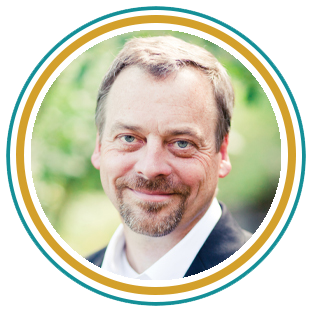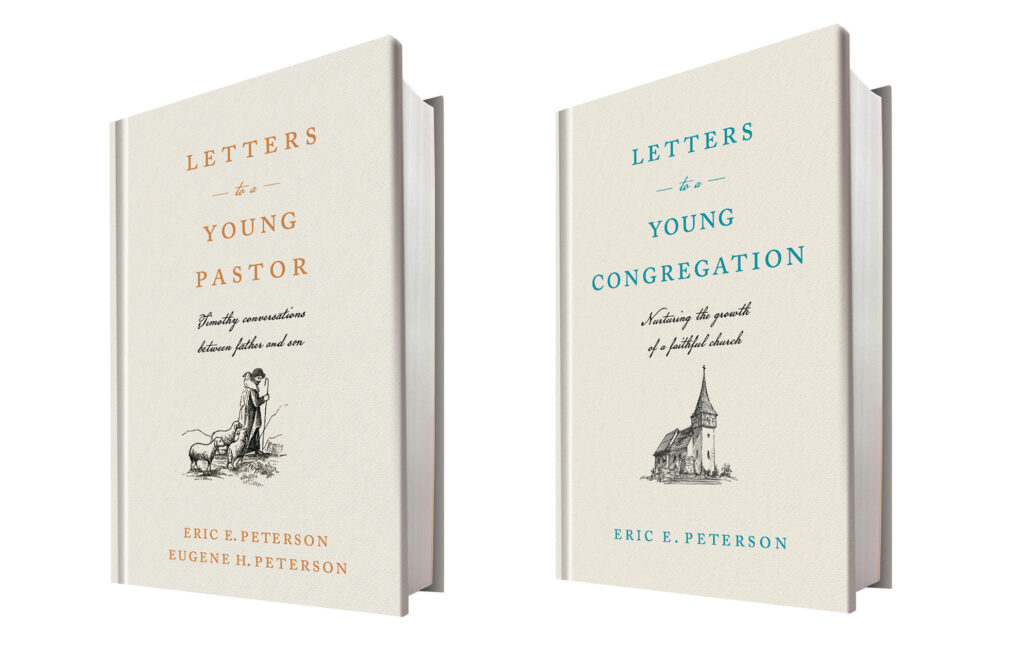The following is an excerpt from Letters to a Young Pastor in which Eugene Peterson, bestselling author and translator of The Message Bible, reflects on pastoral ministry in a series of letters to his son, Eric.
Dear Eric,
Another Timothy letter. We are leaving in the morning for Bel Air and Christ Our King for a few days. As I have been preparing myself, both in what I will say and preach but also emotionally; I have thought a lot of those years—so formative. Interestingly, mostly what I feel is a kind of messiness: What a lot of stumbling around, fumbling the ball, losing my way went on through those years. It is amazing to me now that anything came of it.
Which leads me to reflect on the uniqueness of being a pastor—being a pastor is unique. Not better, not privileged, not anything special, but unique in society as a whole—and also (but not quite so much) in the company of the people of God. Not much transfers from other vocational roles to who we are, what we do.
One aspect of that uniqueness, I think, is that we make far more mistakes in our line of work than other so-called professionals. If physicians and engineers and lawyers and military officers made as many mistakes as we do in our line of work, they would be out on the street in no time. It amazes me still how much of the time I simply don’t know what I am doing, don’t know what to say, don’t know what the next move is. The temptation in that state of being is to become competent at something or other—master something or someone. Unfortunately, there are many opportunities, many “ways of escape” in which we can exercise and develop areas of administrative or leadership or scholarly or programmatic competencies in the church.
It amazes me still how much of the time I simply don’t know what I am doing, don’t know what to say, don’t know what the next move is.
Tweet
But I had a sense much of the time (but not by any means continuously) that “not knowing what I am doing” is more or less what it feels like when I am “trusting in God” and “following Jesus.” This position, in which the church has placed us by ordaining us to this work, means giving witness to what we don’t know much about, living into the mystery of salvation and providence.
I just thought of a phrase that I have sometimes lingered on: “Blessed is the man who makes the LORD his trust, who does not turn to the proud, to those who go astray after false gods.” The “proud” for me in this context are just those people who look like they know what they’re doing—who are competent and recognized as such, who have an honored position in society and among their colleagues. And going “astray after false gods” amounts to living in response to something manageable, turning my vocation into a job that I can get good at. I’m probably reading more into this text than it warrants, but it has given me a couple of images (“proud” and “astray”) that set off little alarm signals when I sense that I am betraying or avoiding the uniqueness of “pastor.”

The odd thing, the surprising thing from this perspective as I reflect on those thirty years, is that I have almost no sense of achievement—what I remember is all the little detours into “proud” and “astray” that I experienced, the near misses, the staggering recoveries or semi-recoveries of who I was and what I was about. In a couple of days, we are going to be back in that place, and everybody is going to be celebrating those years—they’ll have no idea how precarious it felt at the time, how many faithless stretches there were, how uncelebrative it felt for so much of the time.
In retrospect now, the two things that preserved for me the uniqueness of “pastor” were worship and marriage/family. I knew in my gut that that act of worship every week was what kept me centered and that nothing could be permitted to dilute it or distract from it. And I knew that marriage/family were the only hope I had of staying grounded, faithful, relational, learning the practice of love: Jan and you kids provided the conditions in which I could be a pastor.
Maybe those things don’t make “pastor” unique—everybody has to deal with them. But we are very public in what we do in relation to God and love. And that, if not unique, is at least intense, providing occasion for either bluffing our way or constructing a way of life that is “competent” but quite apart from trusting God or braving the intimacies of love. Everybody sees and is influenced either for good or bad by the seriousness and reverence in which we order our response to God (the showcase for it is Sunday worship); and they all notice the way we live with our spouse and kids—they see or don’t see forgiveness and grace and blessing and patience in all our gestures and offhand remarks.
Much of the time “not knowing what I am doing” is more or less what it feels like when I am “trusting in God” and “following Jesus.”
Tweet
And the daily, inescapable reality is that neither one of these areas, worship or family, are we ever in control of, or can manage; if we try, we end up being self-conscious, substituting our ego and performance and reputation for the very things we are committed to doing—worshipping God, loving our spouse and kids.
I wish you and Lynn and Drew and Lindsay and Sadie were going back with us this weekend. I’d like to show you off. I think you might make me feel competent in that place for once.

Sources
[I] Eugene’s reflections in these letters occasionally made their way into his later books. A few paragraphs here would eventually be adapted for his memoir The Pastor: A Memoir (San Francisco: HarperOne, 2011), 315.
[II] Psalm 40:4.



